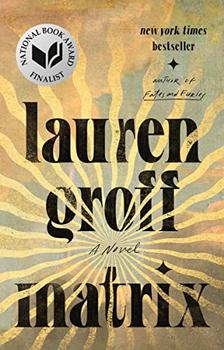Summary | Excerpt | Reviews | Beyond the book | Read-Alikes | Genres & Themes | Author Bio

A stunningly original novel of heartrending lyricism about four women, a fierce mythopoeia that invites us to enter into a new and powerful imagination of the sublime: What if "a woman's point of view" were God's?
From the author of the classic travel memoir Dinner with Persephone: Travels in Greece, a stunningly original novel of heartrending lyricism about four women who invite us to enter into a new and powerful imagination of the divine: what if "a woman's point of view" were also God's?
In the prologue, Eve speaks about what we are told happened in the Garden of Eden, a story she hardly recognizes. She tells her version of events, revealing to us that the constellations we see in heaven conceal other heavens we have never seen or allowed ourselves to see. She reveals four of these hidden constellations and describes how they came to be. Each of the four subsequent chapters is the story of one of these new zodiacs, teaching us how to look at these constellations central to women - a knife, a cauldron for cooking, a paradise garden, a pair of lovers embracing - and how to know the women whose stories they tell: a metamorphosis of Sarah, Abraham's wife; an invented polytheist cook; Job's wife; and the queen of Sheba. Patricia Storace brilliantly and radically reimagines the worlds of these women, freeing them from the old tales in which they were trapped, putting them in the foreground of their stories and of the Old Testament itself.
I am not a biblical scholar, nor do I think it's necessary to be one to enjoy The Book of Heaven. As with any magical fiction, Storace takes liberal poetic license with these historical women's stories. The original tales were written by men; told from their perspective. Storace has clearly has pondered these women's lives and experiences and has arrived at these different allegories; told from their perspectives. As a woman it is not all that difficult for me to give myself - and my disbelief - over to the author and identify with her point of view. It would be interesting to get a male perspective. But beyond gender, each story offers the opportunity to step beyond current beliefs into another realm of reality...continued
Full Review
 (796 words)
(796 words)
(Reviewed by Donna Chavez).
 There are currently eighty-eight officially recognized and named constellations. According to one astronomy website there are, "14 men and women, 9 birds, two insects, 19 land animals, 10 water creatures, two centaurs, one head of hair, a serpent, a dragon, a flying horse, a river and 29 inanimate objects." (Some constellations include more than one creature which is why there are 90 creatures but only 88 constellations.) Included among them are the familiar constellations: Orion, Ursa Major, Ursa Minor, Cassiopeia and the signs of the Zodiac. But over the millennia and across cultures there have been hundreds, probably thousands, more, depending on who was connecting the heavenly dots and why. Assigning names and significance to the stars ...
There are currently eighty-eight officially recognized and named constellations. According to one astronomy website there are, "14 men and women, 9 birds, two insects, 19 land animals, 10 water creatures, two centaurs, one head of hair, a serpent, a dragon, a flying horse, a river and 29 inanimate objects." (Some constellations include more than one creature which is why there are 90 creatures but only 88 constellations.) Included among them are the familiar constellations: Orion, Ursa Major, Ursa Minor, Cassiopeia and the signs of the Zodiac. But over the millennia and across cultures there have been hundreds, probably thousands, more, depending on who was connecting the heavenly dots and why. Assigning names and significance to the stars ...

If you liked The Book of Heaven, try these:

by Lauren Groff
Published 2022
Cast out of the royal court by Eleanor of Aquitaine, deemed too coarse and rough-hewn for marriage or courtly life, seventeen-year-old Marie de France is sent to England to be the new prioress of an impoverished abbey, its nuns on the brink of starvation and beset by disease.

by Sue Monk Kidd
Published 2021
An extraordinary story set in the first century about a woman who finds her voice and her destiny, from the celebrated number one New York Times bestselling author of The Secret Life of Bees and The Invention of Wings.